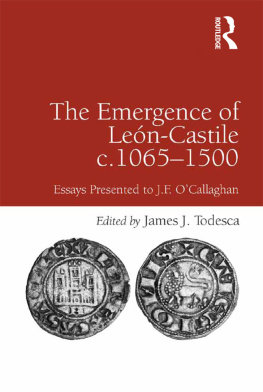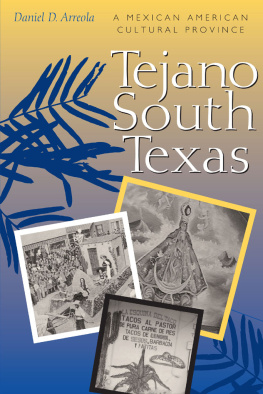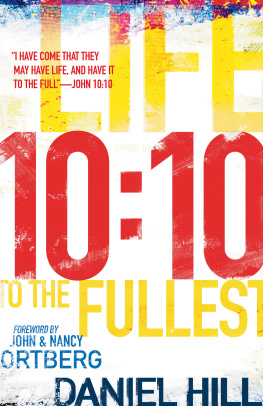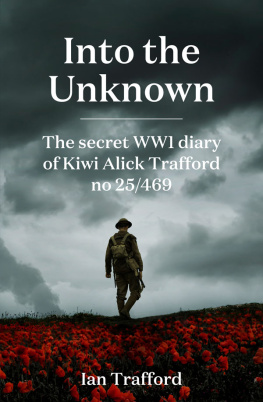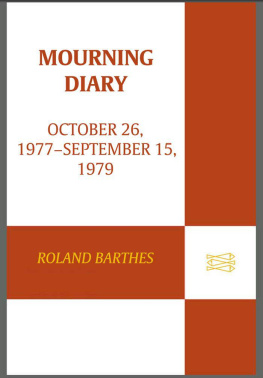2002 by The Kent State University Press, Kent, Ohio 44242
All rights reserved
Library of Congress Catalog Card Number 2002006021
ISBN 0-87338-739-2 (cloth)
Manufactured in the United States of America
06 05 04 03 02 5 4 3 2 I
Library of Congress Cataloging-in-Publication Data
Hill, D. H. (Daniel Harvey), 18211889.
A fighter from way back: the Mexican War diary of Lt. Daniel Harvey Hill, 4th Artillery, USA / edited by Nathaniel Cheairs Hughes Jr. and Timothy D. Johnson.
p. cm.
ISBN 0-87338-739-2 (hardback: alk. paper)
1. Hill, D. H. (Daniel Harvey), 18211889Diaries. 2. Mexican War, 18461848Personal narratives, American. 3. United States. Army. Artillery Regiment, 4th. 4. SoldiersUnited StatesDiaries. I. Hughes, Nathaniel Cheairs. II. Johnson, Timothy D., 1957- III. Title.
E 411. H 45 2002
973.62092dc21 2002006021
British Library Cataloging-in-Publication data are available.
The young lieutenant had slept surprisingly well, his cape insulating his bones from the ground, his canteen serving as a pillow. First Lt. Daniel Harvey Hill arose, folded his cape, and saw to his men. As he passed among them in the dark, he tried to sweep the previous day from his mind. Their brigade, commanded by the able Col. Bennet Riley, had been brought up and placed immediately to the front of the Castle of Chapultepec. Earlier in the day U.S. forces had seized Molino del Rey to the west in a bloody but successful assault, and now all that stood between the Americans and their objective, Mexico City, was the castle perched on a steep hill. They readied themselves to attack the fortress, but the order never came. For five hours the assault force waited within cannon shot, a ludicrously easy target in the blazing sun. Finally a member of Rileys staff rode up and ordered the artillerymen back to their original position, back to the line they had occupied the night before. Why? As they marched to the rear they knew the Mexicans were strengthening their defenses, knowing the Americans must try again. The opportunity had passed; now Chapultepec could only be taken by another bloody assault. Fate had put them in the hands of bungling play-soldiers. So much for the strategy of Major Genl. Pillow, Hill would scratch in his diary that night. Pillow was an imbecile. Colonel Riley knew better. If only their roles could be reversed.
Through the first light, Hill could see Mexican infantry in heavy force occupying the village of La Piedad, half a mile ahead. Soon came the order to advance, and Hill and his company of artillerists moved out on foot. He wished he could fight his company as a battery, but they were infantry, had been infantry, and doubtless would die in Mexico as infantryartillerists without artillery; gunners without guns. Such was the fate of a junior first lieutenant and the men he commanded.
So twenty-six-year-old Harvey Hill marched forth to meet the Mexicans that bright morning of September 9, 1846. Doubtless he was pleased but not surprised when the enemy gave way before Rileys brigade, declining to defend La Piedad. Once they had occupied the little village, the colonel detached Hills Company E, 4th U.S. Artillery and ordered it forward to serve as a large reconnaissance patrol. They were to approach the Nio Perdido causeway: I now saw an immense force occupying the ground between the two causeways which had connecting Batteries. On they went into the teeth of the enemy defenses, Hill leading the way in advance of his men as usual.
At this juncture a member of the brigade staff rode up and halted them. Colonel Riley had ordered them to withdraw from their dangerous position and return to their regiment. Hill dutifully turned his men about only to be confronted by one of General Pillows aides, who directed the lieutenant to disregard Rileys instructions. Hold your position, he said, and wait until you are relieved. Hill ignored the staff officer and continued his march, choosing to follow the orders of the veteran Riley rather than those of an ignorant puppy. Then the division commander himself appeared. Genl. Pillow, Hill would later write, used harsh and insulting language to me for disobeying his order, and I thereupon shook my sword at him and peremptorily forbade him to use such language again. He then arrested me. A first lieutenant confronting a major generalthe American army in Mexico did not have a more independent-minded officer than Harvey Hill.
Some thought it was his spinal affliction that inclined Hill toward being so outspoken, so touchy, so sarcastic. Historian Hal Bridges, Hills biographer, gives weight to this insight. For Hill, even as a boy, one of the intimate realities of life was pain; he had come to expect and accept it. He perceived himself to be a sufferer and had for as long as he could remember. This pain that pursued him, mixed with bedrock Calvinism, led this man of principle, the ultimate nonconformist, to live each day as though it were his last.
Born July 12, 1821, in York District, South Carolina, just below the North Carolina border, Daniel Harvey Hill grew up on what remained of a large plantation in genteel poverty. His father, Solomon Hill, had died young, and the boy was raised by his mother, Nancy Cabeen Hill, a stern Scots Presbyterian. She was a loving woman but of unpredictable disposition. I had no youth, Hill would lament. His mother, however, did inculcate the unquestioning faith that guided his mature life.
Young Hill took great pride in his forebears. Both of his grandfathers had been Revolutionary War veterans of some distinction, and knowledge of their achievements encouraged him to apply for admission to West Point. Despite frequent illness and the lack of sound academic preparation, he steadily advanced in standing and graduated in the middle of the renowned class of 1842. West Point made a profound impression on Harvey Hill, and he absorbed and treasured its system of values. His professional honor, according to Bridges, was especially dear. In combat, he would place it above his life, and fiercely would he defend it, at all times, against the slightest aspersion. Following several years of garrison duty as a junior lieutenant with the 1st and 3d Artillery, Hill joined the 4th Artillery at Fortress Monroe in January 1846. Six months later he was en route to Mexico.
There, despite the encounter with General Pillow and the politically dangerous articles he wrote under the pen names H. S. Foote, Esq. and An Actor for the Southern Quarterly Review and Charleston Mercury, Harvey Hill emerged as an authentic hero, winning brevet promotions to captain and major for gallant conduct at Contreras (Padierna) and Chapultepec. In both instances he displayed individual bravery and initiative while leading storming parties. Young Lieutenant Hill grew up in Mexico, surrounded by death and near death. He had encountered firsthand a different culture, breathed air pungent with the smell of poverty, and witnessed in horror helpless civilians and their treasures washed away in the boiling stream of violence that was war.



